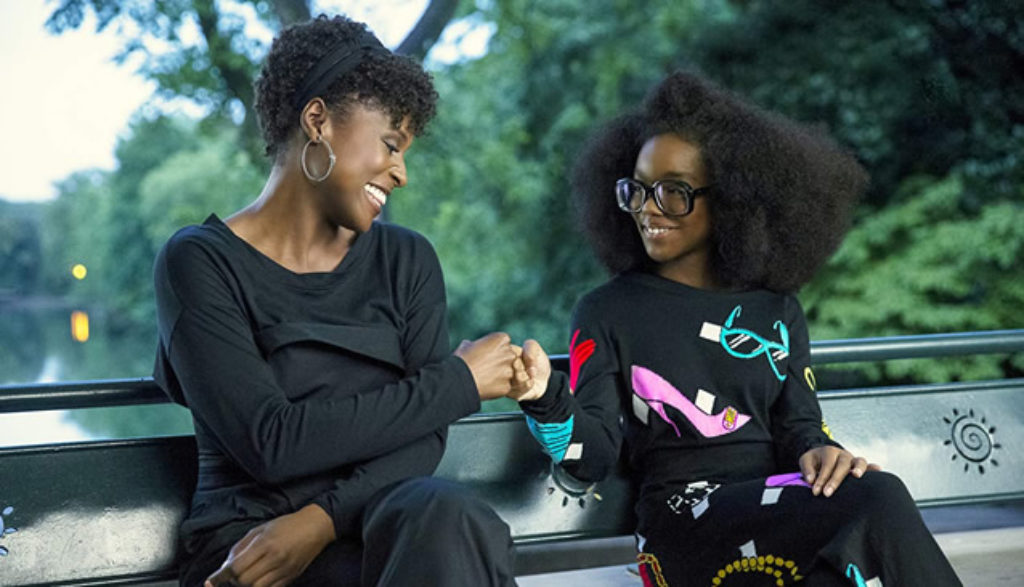
Middle school is rarely something people look back on fondly. Kids can be awkward and mean, and everyone is trying to find where they fit. It can be scarring.
Which is why Jordan Sanders is doing her best to forget about her days at Windsor Middle School in the early 1990s. No more crazy hair. No more awkward phases. No more mean girls. No thank you.
A highly successful business woman now, Jordan prefers to leave her bully-laden past, well, in the past. She’d rather focus on keeping up with her promising tech company. And ruining everyone’s lives while she’s at it.
That’s right: No one likes Jordan. Especially her well-meaning personal assistant, April. And that’s because Jordan vowed, after middle school, to be the bully, instead of being bullied.
And she’s kept that promise.
But Jordan’s success covers deep insecurities. So much so that one day she unleashes a verbally abusive tirade on, you guessed it, a middle school girl who becomes the latest target of the tech mogul’s uncontrolled anger.
The girl—who’s trying to show Jordan a magic trick—sarcastically uses her wand to cast a curse-like spell on Jordan. A spell so powerful that Jordan wakes up the next day years younger. Like, ready-for-middle-school younger.
Now, Jordan must relive the worst years of her life, relearning painful lessons about dealing with bullies. And if she ever hopes to become an adult again, Jordan’s going to have to learn some humility … as well as learning what it means to truly be a friend to others.
While Jordan initially believes that “it’s better to be broken-hearted than broke,” being “little” again teaches her a number of important lessons.
First and foremost, perhaps, she’s humbled because she can no longer just order people around. She realizes that she has to depend on others—especially April, but also three young friends she makes at school.
That process helps her to see how much she never really dealt with old wounds from her childhood. Instead, she just built a suit of emotional armor, vowing never to let anyone in. That’s made her very successful, but very lonely as well.
So throughout the film, Jordan learns how to let her guard down, to trust others, to depend upon them, and to realize that she doesn’t have to control everything and everybody around her. She slowly lowers her exterior walls as she develops friendships with unlikely people. She eventually learns to include others, to support and encourage them. She also apologizes for years of nasty, negative behavior.
Jordan, as mentioned, wrestles with issues of control and outward appearance. And her rather casual boyfriend, Trevor, sees this. He talks about wanting to support and encourage her, even though she pushes him away. He’s willing to get more serious, especially when he mistakes Little Jordan for being her secret daughter, something that brings out a surprisingly tender father impulse in him.
Positive themes such as innocence, optimism, healthy introspection, healing and forgiveness are all present at various points in the story. We also learn that when our friends succeed and “win,” we also win. Finally, we’re challenged not to let others’ criticism or negativity define us, and to love and embrace the best parts of who we truly are instead.
As mentioned, Jordan is magically transformed into a 13-year-old girl after a young girl casts a spell on her—something that the girl herself apparently didn’t realize or understand was happening. Part of the plot involves finding the girl again to see if she can cast another spell to reverse this curse.
We hear a joke about someone who has “black girl magic.” An adult calls a young girl a “Chocolate Hogwart” (referencing Harry Potter). A woman meditates in her room, palms upward, her thumb and forefinger together.
A woman jokingly quips that those who don’t eat carbs will “see Satan.” A mean group of girls are called “demons.” Little Jordan asks God to “send her a sign” as she wonders what decision to make. A young girl sarcastically quotes Proverbs 18:22: “He who finds a wife finds a good thing.”
Adult Jordan has a very casual sexual relationship with Trevor, whom she crudely refers to as her “d-boy.” She clearly views their relationship almost exclusively in sexual terms (even though Trevor would like to take it more seriously on an emotional level).
Trevor dances provocatively, grinds against inanimate objects and strips (down to his boxers). He’s horrified at one point when he realizes that Little Jordan (whose real identity he doesn’t know) is watching him. Elsewhere, he and Adult Jordan kiss, flirt, dance closely and are seen in bed together (Jordan in an oversized sweater and Trevor in his boxers). Another scene pictures their mingled clothes strewn on the floor. Trevor is shown shirtless in several scenes.
Little Jordan may be biologically small, but she still has Adult Jordan’s mind and experiences inside. Accordingly, she flirts with her adult, male teacher, insinuating her sexual interest and desire. (Her flirtation horrifies her teacher and, later, Trevor as well, who still has no idea who she is.) A number of jokes turn on the tension of Little Jordan behaving like an adult around the men she’s with—something that’s played for humor but which also creepily sexualizes Little Jordan.
April is very open to a sexual relationship with a few men, one being a love interest at work and the other being an attractive male teacher. She makes various comments about sex and arousal, as well as telling coworkers that Adult Jordan hasn’t been at work because she’s caught at nasty sexually transmitted infection.
We hear a lot of sexual jokes and plenty of suggestive innuendo, throughout the film. Verbal gags about sex, intimacy, divorce, desperation, same-sex attraction, genitalia, breast size, breast implants and losing one’s virginity are all heard before the credits roll.
Adult Jordan mocks a young child’s appearance, asking the little girl how far along the child is in the sex-change process. The scene is played for laughs to illustrate Jordan’s nasty character, but the mother is offended and horrified at Jordan’s words.
A woman is also offended when a random woman rubs her husband’s bald head. A woman rubs a man’s bare stomach. A group of middle school girls perform a provocative dance routine. Women wear cleavage and midriff-baring outfits.
Jordan was bullied as a young girl (and is again in her present, “little” state). A mean and popular middle school girl hits Jordan with a large ball, knocking her off a high platform during a talent show. Later, Jordan’s seen in a wheelchair with a broken arm and injured neck. Later, Little Jordan falls down some riser steps as well.
Jordan has become a bully as an adult, verbally and sometimes physically, too. She knocks one of her employees in the head, rams another into a wall and throws things at others out of anger.
An adult woman gets into a fight with Little Jordan. Later, another woman threatens to spank Little Jordan for her bad attitude.
A witch gets crushed in a movie. A young girl pierces a friend’s ear, and we see the bloody result. A young boy is accidentally hit in the crotch (a scene played for laughs). Jordan (both as an adult and as a child) drives her sports car aggressively and recklessly.
God’s name is misused more than 15 times, and Jesus’ name is misused twice. (One of those exclamations is, “What in the black Jesus!”). A woman mouths the f-word once and begins to say it again, but is cut off. Similarly, the word “b–ch” is mouthed once. Other profanity we hear includes multiple uses of “h—,” “d—,” “d–mit” and “a–.”
A woman often tells her employees to “shut up” and calls them “dumb.” Elsewhere, she calls one of her female associates a derogatory name. A kid screams “You suck!” at a fellow classmate.
When Jordan turns into a child, it takes her a while to understand that she can’t drink alcohol. A few times she grabs wine (or asks for hard liqour) in an attempt to drink, but never actually consumes any beverages. However, she does make a comment about taking tequilia shots and drinking to “take the edge off.”
Jordan’s nightstand by her bed holds multiple bottles of presecription medication, a wine glass and a bottle of wine. She has a mini-bar inside her home, too. April jokes about snorting sprinkles off of a donut, and another woman makes a comment about giving a child alcohol. A man smokes marijuana from his car, and a little girl apparently gets a whiff of it.
One of Jordan’s employees talks about taking anti-anxiety medication (Xanax). A woman jokes that a young girl’s mother is a “crackhead.” Jordan’s employees joke that their staff meeting is similar to an Alcoholics Anonymous meeting.
Middle school kids, as well as adults, can be very rude in both speech and action. Both groups make harsh comments, disregard others’ feelings and purposefully embarrass those whom they deem to be “less” than themselves. A group of kids makes fun of a young boy for his speech impediment, as well as other sweet young students who are ostracized for being socially awkward.
Little Jordan encourages her middle school friends to skip school. We hear some light-hearted banter about racial and physical stereotypes. Jordan’s life is one of opulence and extravagance, and she’s grown used to her staff and administrative assistant meeting her every whim or need.
Little Jordan is referred to as a “crazy little Chuckie doll.” Adult Jordan is described by her employees as being a “vampire” and “plain evil.” April listens to a self-help audio book titled So You Want to Slap Your Boss? in the hope of overcoming her frustration with Jordan at work.
The wonder, innocence and creativity of childhood sometimes get lost by the time we make it to adulthood. And the wounds we’ve received as children may very well influence our success, failure and relationships as adults.
Add to that our culture’s pressure to have life all figured out, and too often the result is a life that may seem pretty and successful, but one that is quietly missing the stuff that really matters.
That’s what Little is about. It reminds us that the dreams we had as children—before our hearts were crushed by adulthood—still matter. It tells us that it’s never too late to reconnect with our inner child and remember what really matters most. Life’s not about success at any cost; it’s about building relationships with the people who matter most to us.
There are a lot of sweet moments in this film. But those sentiments don’t outweigh this movie’s PG-13 content issues. Sexual innuendo and language are the two big contenders here. Adult Jordan’s sexual advances on men in Little Jordan’s body feel particularly creepy.
For a movie that might naturally seem to appeal to young viewers, I’ll end by saying that Little isn’t appropriate for the littles in your family.
It’s easier to look back and see the mistakes you made, as Jordan does. However, we as parents are trying to help our kids move forward into adulthood. For some ideas on conversations about the type of adult God is calling your teen to become, take a look at:
Equipping Your Teen With Character
What the Bible Says About Beauty And Appearance

Kristin Smith joined the Plugged In team in 2017. Formerly a Spanish and English teacher, Kristin loves reading literature and eating authentic Mexican tacos. She and her husband, Eddy, love raising their children Judah and Selah. Kristin also has a deep affection for coffee, music, her dog (Cali) and cat (Aslan).